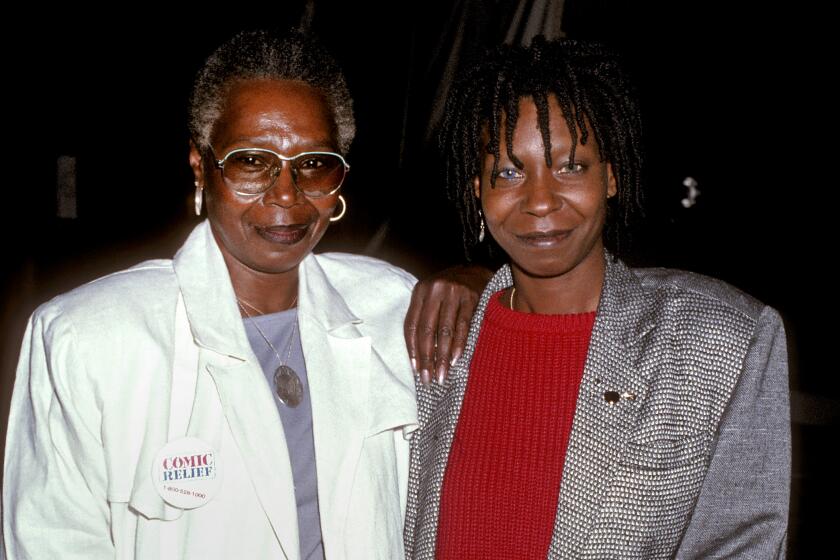Thoughtful Teens Populate Young Writer’s Coming-of-Age Tale
Here’s a bulletin from the trenches of teenagehood, a German bestseller by and about 16-year-old Benjamin Lebert, a self-proclaimed demi-”cripple” who flunks out of four schools before being sent away to boarding school so his parents can fight and separate in peace. On one level, “Crazy” is a novel about typical boarding school antics--smoking, drinking and sneaking into the girls’ dorm--with Pink Floyd singing “We don’t need no education” in the background. But Lebert has a philosophical bent, and “Crazy” is more about searching than rebelling. It’s about adolescents trying to find answers to some big questions--”So what’s friendship?” “Why did God make girls anyhow? . . . . Why are they so sexy?” “What are we supposed to know? . . . That we know nothing?”--and being repeatedly taken aback by the realization that it’s all “too complicated” and “too big” to fully understand.
*
Written in the first person, present tense for maximum immediacy and directness, “Crazy” is a quick read composed mainly of dialogue. It bears superficial resemblances to two other novels of adolescent incarceration--J.D. Salinger’s “Catcher in the Rye” and Susannah Kaysen’s “Girl, Interrupted”--as well as Sue Townsend’s hilarious sendup of adolescent male preoccupations, “The Adrian Mole Diaries.” At its best, Lebert’s slim wisp of a book is moving and funny, but it is often marred by creeping sentimentality and cloying pseudo-profundity.
“Crazy” takes its epigram from Georges Simenon: “We are all potentially characters in a novel--with the difference that characters in a novel really get to live their lives to the full.” Lebert and his boarding school gang of five do their damnedest to milk the most from their time on Earth--even when confined to the restrictive Castle Neuseelen, or New Souls Boarding School.
*
“I can sleep all I want when I’m dead,” one boy rationalizes about their nightly high jinks.
“Doing nothing would be boring,” another comments.
“You have to drink life,” their ringleader, Janosch, says. “You can never do enough insane things.”
They don’t miss an opportunity for adventure, always following the teenage Grail of sex, excitement and acceptance--especially acceptance. Crazy is their buzzword for anything that is exciting.
What is refreshing about this boarding school novel is that Lebert’s newfound buddies, although misfits all--one “a slave to candy,” one orphaned, one a silent bed-wetter--are not the cruel monsters of the British genre, including the nasties at Hogwarts in the Harry Potter books. They are actually somewhat kind and thoughtful to each other: Janosch repeatedly tells Benni, the narrator, not to get all worked up about his disability, and even carries him on his back for some of their long nocturnal treks up dormitory fire escapes and down train station platforms.
The most surprising aspect of “Crazy” is the narrator’s touching attachment to his parents--a stance few self-respecting American adolescents would admit to so boldly in print. Walking into his new school, he not only holds his father’s hand, but also confesses, “I think I’m going to miss him. Sure, we’ve fought a lot, but after a tough day at school, he was always the first with a smile for me.” When Benni and his friends run away to Munich one night, Benni worries about his mother’s certain anguish at the news of their disappearance.
“Doesn’t matter where I am,” he says, flirting unabashedly with the sentimental, “I love my parents.”
Although the narrator’s total inability to do math is linked to his partial paralysis from birth, his near-flunking grades in German are more of a surprise, for his affinity to literature is clear. The scene in which he reads “The Old Man and the Sea,” weeping, to his fellow runaways on a train to Munich might strain credulity among cynical American readers. We’re supposed to believe that a group of boys headed for a strip joint are moved to tears by Hemingway’s tale of a washed-up fisherman?
“So what’s literature?” Lebert has his fictional alter-ego ask. And his answer is typically corny, but the sort of corn some readers will eat up: “Literature is where you read a book and feel you could put a little mark under every line because it’s true.”
Not every line of “Crazy” rings true, but with standards like these, Lebert’s career should be an interesting one to watch.
More to Read
Sign up for our Book Club newsletter
Get the latest news, events and more from the Los Angeles Times Book Club, and help us get L.A. reading and talking.
You may occasionally receive promotional content from the Los Angeles Times.






